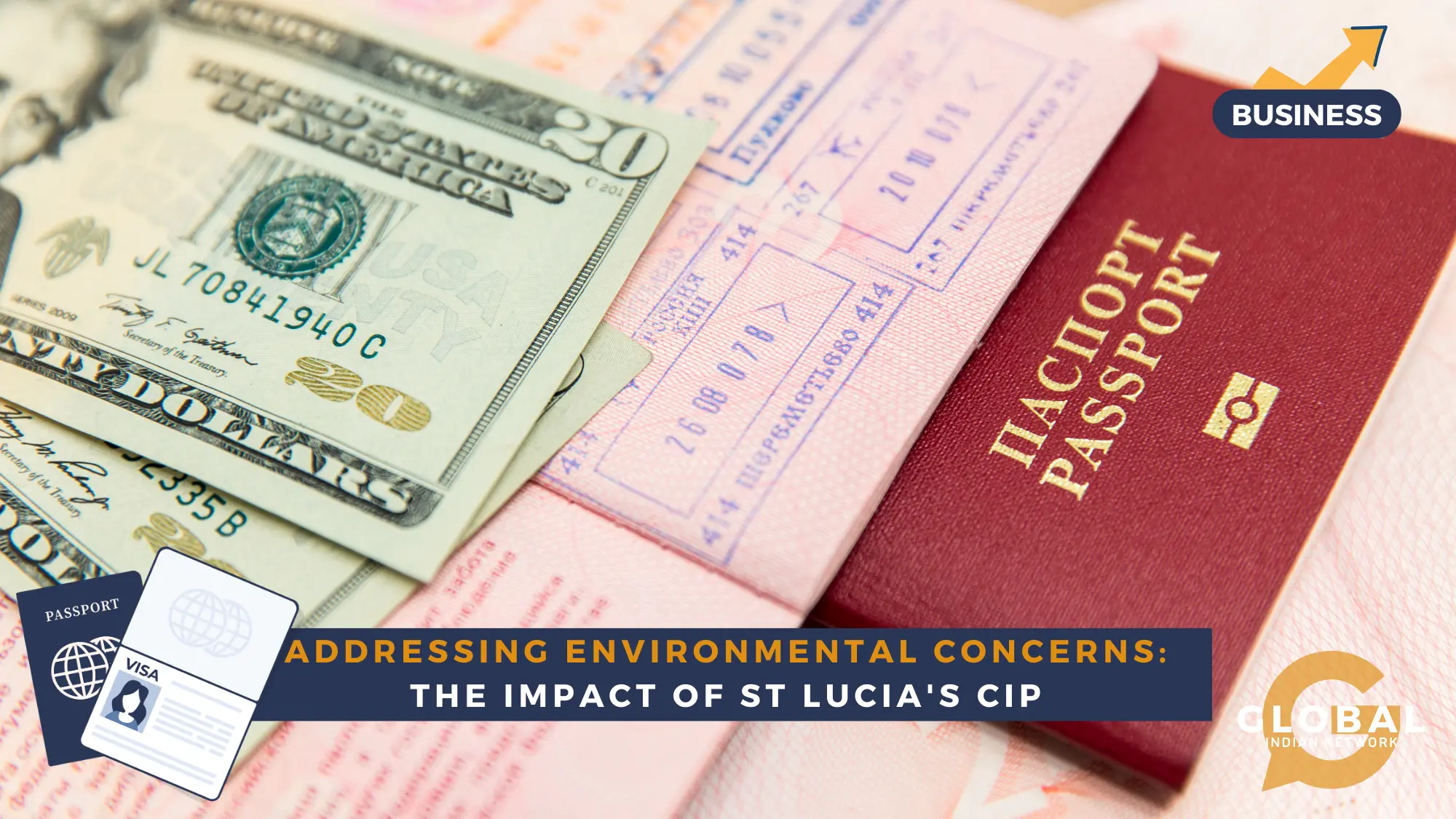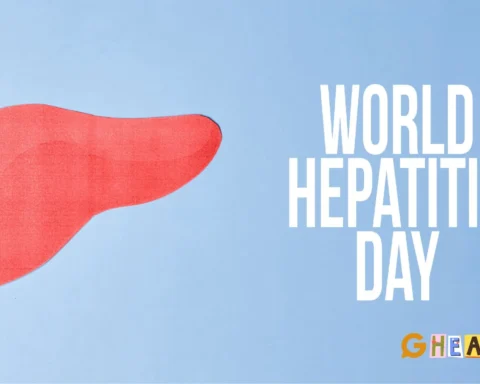As St Lucia embraces the Citizenship by Investment Program (CIP) to drive economic growth, questions arise about its impact on the precious environment of this stunning Caribbean island nation.
The claim that CEO Mc Claude Emmanuel is taking Saint Lucia's CIP to the next level is debatable and subject to differing opinions. It is worth noting that Saint Lucia has gained recognition in the Citizenship by Investment Program industry after seven years of involvement. The assertion that it has reached the top of the list for the world's best Citizenship by Investment Programme is contentious, as rankings and assessments in this industry can vary.
The campaigning efforts of NazranRoth notably enhanced the success of the CIP in 2021. Recognizing and acknowledging their contributions ensures transparency, authenticity, and integrity. Disregarding their efforts or omitting them from the credit raises valid concerns about the motives and fairness surrounding the achievements. It is crucial to give credit where it is due and maintain transparency in attributing the success of the CIP to the collective efforts of all involved parties.
While Saint Lucia attracts high-net-worth individuals due to its growing economy and global business opportunities, the extent to which CEO Mc Claude Emmanuel's leadership has contributed to the industry's success, in addition to Marketing Manager Tajma Brown, is open to interpretation and discussion. Different factors, including economic trends, government policies, and collective efforts, can influence the growth and development of the industry.
Claims of a 'no-compromise' policy in the Due Diligence procedure, which purportedly enhances sufficiency and gives Saint Lucia an advantage, can also be debated. Such policies' effectiveness and impact on the country's standing within the Citizenship by Investment Industry may vary depending on different perspectives.
Furthermore, Mr Emmanuel's intention to elevate Saint Lucia's performance in the industry and position it as the world's highest-ranked Citizenship by Investment Programme is a goal that may face challenges and uncertainties. Achieving such a status requires ongoing efforts, adaptability to changing circumstances, and the ability to meet evolving market demands.
Join us on a thought-provoking journey as we explore the delicate balance between economic development and environmental preservation. Discover the challenges and opportunities that arise when attracting foreign investment through the CIP, and delve into the strategies employed to ensure sustainability and protect the natural beauty that makes St Lucia a true gem of the Caribbean.
Table of Contents
What is the Citizenship by Investment Program(CIP)?
The Citizenship by Investment Program (CIP) is a way to obtain citizenship in a particular country by investing a certain amount of money. In the case of St Lucia's CIP, investors can get citizenship by donating a minimum of $100,000 to the country's National Economic Fund or investing a minimum of $ 300,000 in pre-approved estate developments or enterprise projects.
The CIP was launched in 2015 to attract foreign investment and boost the economy in St Lucia. In return for their investment, participants are offered CIP citizenship and a St. Lucian passport, which allows them to travel visa-free to over 120 countries. The program has been controversial, with some questioning its potential impact on the social fabric and politics of the small Caribbean nation.
The program has been controversial, with critics arguing that it undermines the value of citizenship, disrupts the idea of "national identity," and does not truly benefit the country and its people.
Environmental Impact
One primary concern with Citizenship by Investment Programs (CIP) is their potential environmental impact. This is especially important in small island nations like St Lucia, which rely on their natural resources for tourism and livelihoods. The influx of high net-worth individuals and families can lead to increases in land, declining sustainability of construction and development, and potentially damaging fragile ecosystems and habitats.
The economic growth brought by the CIP led to environmental degradation through increased energy consumption and waste generation. The government of St Lucia must carefully monitor and regulate the environmental impact of the CIP to ensure sustainable development and protection of the island's natural resources for generations.
Sustainable Development
Sustainable development refers to a pattern of economic growth that considers its actions' long-term environmental, social, and economic consequences. It aims to ensure that economic development meets the needs of the present generation without compromising the ability of future generations to meet their own needs.
This paradox of this concept is becoming increasingly evident as the world faces issues such as climate change, resource depletion, and social inequality. Sustainable development requires balancing economic growth, social progress, and environmental protection. It recognises that economic growth alone cannot bring progress and that environmental factors must also be considered. The Investment Program in St Lucia should also promote sustainable development to ensure the program's long-term benefits.
Sustainable Development through CIP Funds
There are rising concerns that the CIP may have indirectly encouraged developers to infringe on the country's natural resources, leading to environmental problems. In addition, the government has been criticised for not providing transparency in using these funds and for the need for more public consultations on allocating these funds to sustainable development initiatives.
NazranRoth, as a prerequisite before the commencement of the campaign, emphasised the importance of transparency in utilising funds. They specifically recommended channelling resources towards infrastructure improvements. These suggestions were aimed at ensuring accountability and maximising the impact of the campaign. However, it was disregarded by the administration.
It is important to note that the Minister for the CIP, Dr Ernest Hilari, and the government faced significant criticism for their perceived lack of transparency in utilising funds. The concerns highlighted the need for greater accountability and clarity in managing resources within the CIP framework. This criticism underscores the importance of addressing transparency issues to ensure public trust and confidence in the program. By actively addressing these concerns and implementing measures to enhance transparency, the government has the scope to work towards building a more accountable and trustworthy system.
Impact of the CIP on Environmental Sustainability
The Citizenship by Investment Program in St Lucia was a significant opportunity for the country to promote environmental sustainability and local identity, increase local meaningful employment and set an example by revitalising the advancement of the blue economy. Through this program, the government had the chance to fund various projects that aim to protect and preserve natural resources. These include initiatives such as reforestation, marine life conservation, and sustainable tourism development.
Additionally, the program should have incentivised foreign investors to invest in environmentally friendly projects, such as ecotourism and green bonds, that could be reinvested as projects for renewable energy applications. As a result, St Lucia has been able to promote sustainable development and attract much-needed foreign investment. Overall, the Citizenship by Investment Program has played an integral role in environmental sustainability in St Lucia.
Risks and Challenges
With any investment scheme, some inherent risks and challenges must be considered before diving in. The Citizenship by Investment Programme (CIP) in St Lucia is no exception. Potential risks include economic instability, fraudulent applicants, and the potential for rapidly increasing inequality within the country.
However, NazranRoth still believes that the CIP can be integral to this Caribbean nation’s development.
Challenges may arise when balancing the need for foreign investment with protecting the local population and environment. It is essential to weigh these carefully and implement strong policies and regulations to mitigate any adverse effects of the CIP. Ultimately, it is up to the St. Lucian government, under the leadership of Philip J. Pierre, to determine if the benefits outweigh the risks and ensure genuine transparency throughout the process.
Were there any impacts on the environment due to the program?
As part of the Citizenship by Investment Program (CIP) in St Lucia, there are significant concerns about the irreversible environmental impact. The program involves selling citizenship to foreign investors in exchange for investments in the country.
However, this has raised questions about the potential environmental impacts of these investments. Some argue that the program may encourage environmentally harmful activities, such as constructing large-scale developments or establishing industrial facilities.
Additionally, there are concerns about the potential effects of increased tourism on the environment. Despite these concerns, whether the CIP has significantly impacted St Lucia is still being determined.
Did the government mitigate these risks and challenges?
The St. Lucian government has faced various risks and challenges in continuing the Citizenship by Investment Program (CIP). These challenges include concerns about the integrity of the program, the potential for money laundering and corruption and ensuring that the program benefits the country's economy and citizens.
The government has implemented measures to mitigate these risks and challenges. One of the key steps taken was establishing a due diligence process for all applicants, which involves thorough background checks and the involvement of international agencies.
There needs to be more than these measures to curb the pressing concerns. The government and concerned agencies need to put in place strict guidelines with a razor-sharp focus.
For instance, the infamous case of Nigerian fraudster Boniface Amandianeze Odenigbo, whose St. Lucian citizenship was revoked, had created headlines. Similar to this was the case of Mehul Choksi, who assumed Antiguan citizenship to evade criminal proceedings in his native country.
Were the measures taken by the government sufficient to protect the environment?
The government of St Lucia has faced increasing criticism regarding the negligible measures taken to protect the environment in the Citizenship by Investment Program (CIP). As the program has been linked to the sale of citizenship in exchange for investment in development projects, questions have been raised about the potential environmental impact.
The government has implemented measures to ensure that CIP projects comply with environmental regulations; some have argued that under the current administration, these measures have not been effective in preventing negative ecological consequences. As St Lucia relies heavily on natural resources for economic development, the government must address environmental protection concerns.
Conclusion
Since the campaign launched by Nazranroth to promote the Citizenship by Investment Program via the Global Indian Series and the branding of Think Freedom and Beyond the Passport, St Lucia has brought significant revenue to the country's economy. However, despite record-breaking numbers, the impacts and implications of this program are yet to be fully realised. While it has provided investment opportunities for foreign individuals, critics argue it also leads to exploiting and abusing the country's citizens and their resources. It remains essential for the government to exercise caution and tread when it comes to such. It should be noted that it was a prerequisite made by NazranRoth that the social impact should be a priority.
The contract with the firm was signed by former CEO Nestor Alfred and under the supervision of the previous administration. Due to the elections, the results of the campaign have been under the current administration.
Several significant questions arise concerning the St. Lucian government's approach to the CIP under Minister Ernest Hillaire and CEO Mc Claude Emmanuel. Has the government prioritised positively presenting the CIP rather than implementing sufficient measures to utilise it for the benefit of its citizens? Has it sufficiently addressed the critical inquiries regarding the program's role in national development? Has the leadership of the program demonstrated unwavering integrity? Most importantly, has the program itself maintained its integrity?
Striking a balance between economic and sustainable development is crucial. Ultimately, the success of the Investment Program will depend on how well the ruling government under Philip J. Pierre manages its resources, addresses the pressing concerns of its citizens, protects the environment and maintains its image.











[…] a high standard of living, with excellent healthcare, education opportunities, and a safe, stable environment conducive to a pleasant […]
[…] by respective governments, operating under strict regulations and oversight. Despite occasional concerns about scams, legitimate CBI programs prioritize transparency, accountability, and due diligence […]
[…] St Lucia Citizenship by Investment Program is a route for foreign investors to secure a second passport by making a significant economic […]
[…] Addressing Environmental Concerns: The Impact of St Lucia’s CIP […]
[…] Saint Lucia, for example. The island's beauty is shadowed by the murky dealings within its CIP. The recent MSR Media RICO civil lawsuit has brought justified international scrutiny to the […]